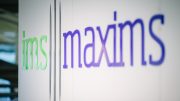Medial EarlySign, a leader in machine-learning (ML) based solutions to improve disease management, has shown successful results for the live, physician-supported implementation of its solution for aiding in earlier colorectal cancer detection, in new research published by the Journal of Oncology CCI.
According to a recent study, the solution examined medical records of 79,000 adult Maccabi members who had not been compliant with colorectal cancer (CRC). From these, 688 men and women were identified as higher risk for CRC and recommended for further evaluation. Doctors of flagged individuals were notified and asked to follow up with their patients. Of these, 254 had colonoscopies performed by Maccabi physicians, and 19 colorectal cancers were found, as well as 22 with advanced adenomas (high-risk precancerous lesions). An additional 15 cancers primarily identified outside of the Maccabi system were also found through national cancer registry code matching.
The peer-reviewed study, conducted with leading Israeli integrated delivery network Maccabi Health Services (MHS), outlines the success of Medial EarlySign’s model, which used only the simple parameters of age, gender and complete blood count (CBC) results. Whereas Maccabi’s study found cancers/advanced adenomas in 8.1% of flagged individuals, general population colonoscopies return a positive (presence of cancer) result in just 0.1-0.2% of cases.
The goal of the implementation was to increase earlier detection of cancer among members resisting screening by using advanced ML-based technology to find signs of the disease in routine EHR data. The results show that this technology can successfully provide such a safety net in clinical practice.
“What is particularly encouraging about these results is that they have been achieved in a real-world setting, where physicians were asked to follow through on the flagged patients. They did, and now these individuals can be treated appropriately,” said Varda Shalev, MD, Head of the Maccabi Institute for Research & Innovation (Maccabitech). “It is noteworthy that these results were similar to the findings of our simulations and previous studies. We have found this solution to be very effective for us both clinically and financially.”
“The implementation of machine-learning based algorithms to risk stratify populations at risk is commonly feared by many clinicians and population health managers as a hard-to-trust black box. In collaboration with Maccabi, we have shown for the first time that given the correct set-up of clinical leadership and top-notch technology, obstacles and hurdles can be overcome,” said Dr. Ran Goshen, Chief Medical Officer of Medial EarlySign.
In addition to CRC, Medial EarlySign’s machine learning and mathematical models (AlgoMarkers™) help healthcare organizations confront challenges they face with other medical conditions (including lower GI disorders, diabetes, kidney disease and other life-threatening conditions) and identify patient subpopulations who may benefit from interventions or may be at high risk. The company’s solutions are already in clinical practice, with additional studies involving data of more than 20 million patients in 14 leading institutions around the world.





